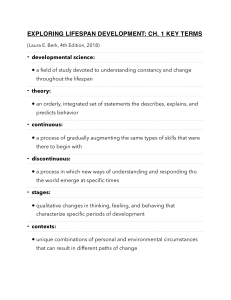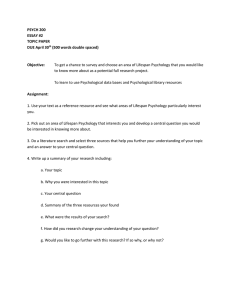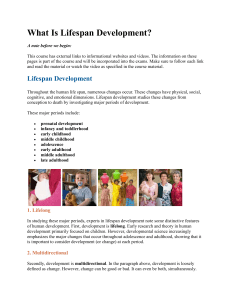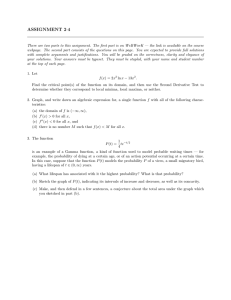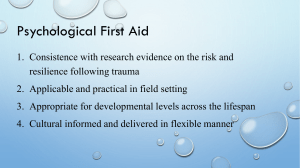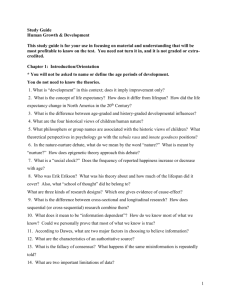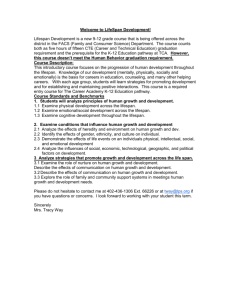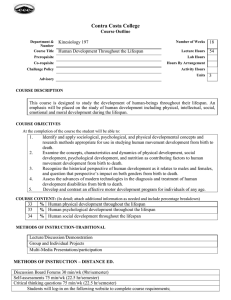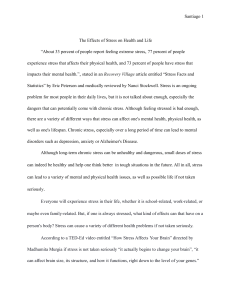Lifespan Development Key Terms
advertisement
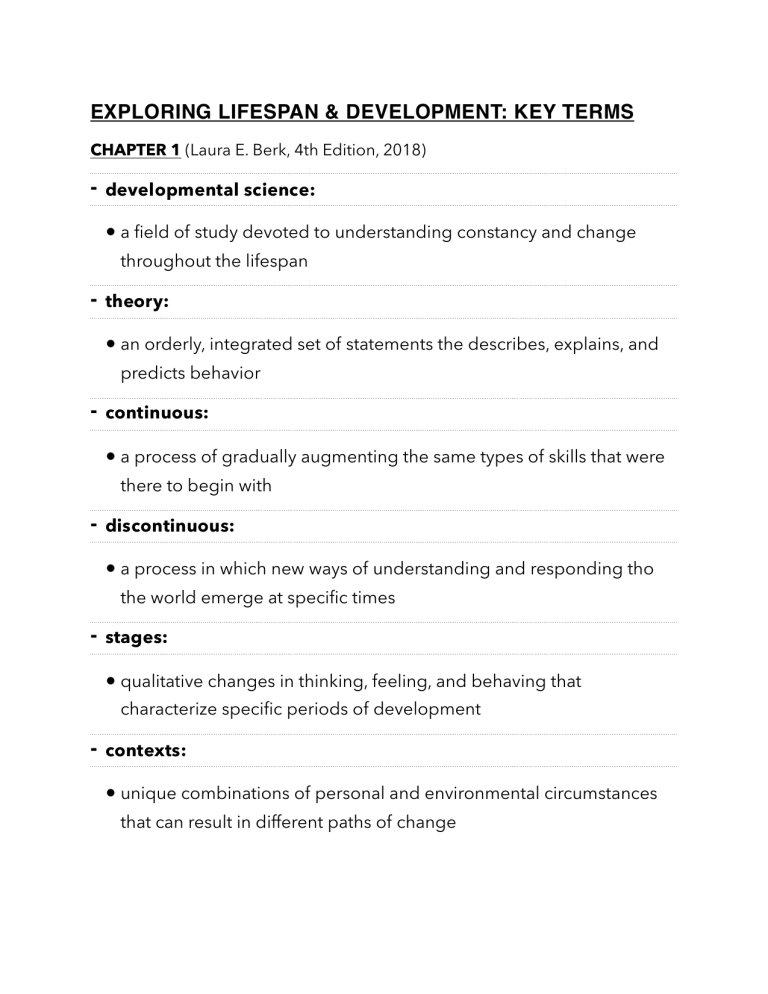
EXPLORING LIFESPAN & DEVELOPMENT: KEY TERMS CHAPTER 1 (Laura E. Berk, 4th Edition, 2018) - developmental science: • a field of study devoted to understanding constancy and change throughout the lifespan - theory: • an orderly, integrated set of statements the describes, explains, and predicts behavior - continuous: • a process of gradually augmenting the same types of skills that were there to begin with - discontinuous: • a process in which new ways of understanding and responding tho the world emerge at specific times - stages: • qualitative changes in thinking, feeling, and behaving that characterize specific periods of development - contexts: • unique combinations of personal and environmental circumstances that can result in different paths of change - nature-nurture controversy: • nature: the hereditary information we renice from our parents at the moment of conception • nurture: the complex forces of the physical and social world that influence our biological makeup and psychological experiences before and after birth - plasticity: • open to change in response to influential experiences - developmental systems perspective: • a perpetually ongoing process, extending from conception to death, the tis molded by a complex network of biological, psychological, and social influences - lifespan perspective: • four assumptions make up this broader view- that development is: - lifelong - multidimensional and multidirectional - highly plastic - affected by multiple interacting forces - multidimensional: • affected by an intricate blend of biological, psychological ,and social forces - multidirectional: • at every period, development is a joint expression of growth and decline - wisdom: • expertise in practical matters, a quality of reasoning - 3 MAJOR DOMAINS OF DEVELOPMENT • physical development: - changes in body size, proportions, appearance, functioning of body systems, perceptual and motor capacities, and physical health • cognitive development: - changes in intellectual abilities, including attention, memory, academic and everyday knowledge, problem solving, imagination, creativity, and language • emotional and social development: - changes in emotional communication, self-understanding, knowledge about other people, interpersonal skills, friendships, intimate relationships, and moral reasoning and behavior
